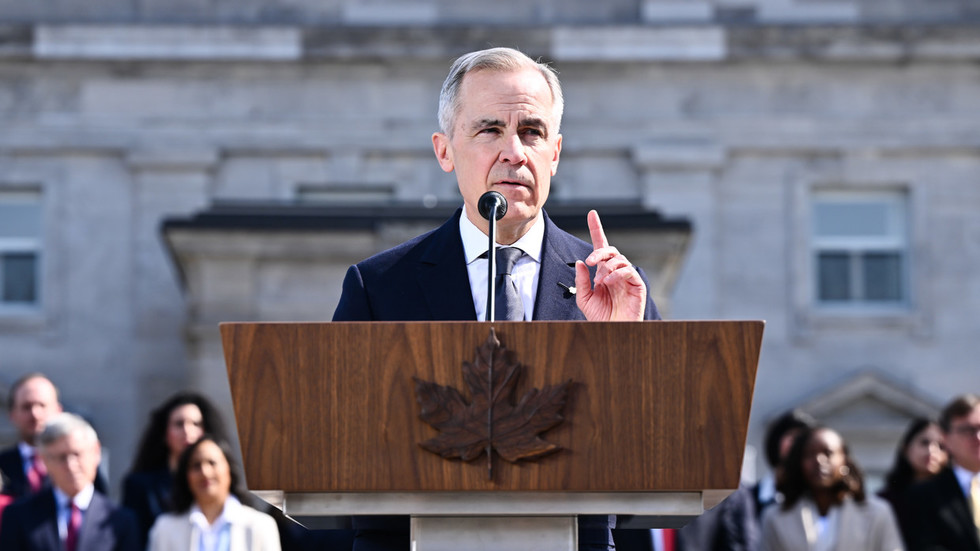The Stonewall riots on New York's Christopher Street in 1969 saw scores of trans people fighting for the rights of queer people.
However, what turned into a milestone for the LGBTQ+ movement, is now no longer mentioned on the Stonewall memorial website.
Trans people just like intersex and queer people have been deleted from the website.
The US National Park Service, which is responsible for presenting the monument on Christopher Street on the internet, is one of many US institutions that have been instructed to avoid using certain terms in official announcements.
Earlier in March, The New York Times published 200 of these terms. In addition to LGBTQ, they include "black," "marginalized" and "discrimination."
This kind of censorship is one of many ways President Donald Trump's administration is taking action against diversity, justice and inclusion. The abbreviation of the term "Diversity, Equity and Inclusion", DEI, is also on the list.
"You see an administration that actively wants to suppress dialogues about continuing struggles for equality of opportunity in our country," Laura Ann Sanchez, professor of sociology at Kentucky's Bowling Green State University, told DW.
"I cannot say whether these actions are grounded in racism, homophobia, misogyny, or plain old unvarnished hostility toward civil rights gains," she said.
 Observers point out that Donald Trump wants to suppress dialogues about continuing struggles for equality of opportunity in the USImage: Jacquelyn Martin/AP/dpa
Observers point out that Donald Trump wants to suppress dialogues about continuing struggles for equality of opportunity in the USImage: Jacquelyn Martin/AP/dpaWhat is Trump trying to achieve?
For decades, DEI has been instituted in universities, governmental institutions, and many businesses.
However, Sanchez warns that "when something with such a rich conceptual framework such as DEI gets bureaucratized, it becomes easier to attack."
As early as January, Trump had ordered ministries and federal agencies to cancel all DEI programs.
According to Annika Brockschmidt, a journalist and author specializing in America's religious right, the Trump administration is pursuing one particular objective with such orders.
"Ultimately, this is an attempt to create a fake debate so that people don't talk about what is actually happening," Brockschmidt told DW.
In her opinion, the government is attempting to introduce "re-segregation," or a new division not only in administrative bodies, but society as a whole.
Racist laws that systematically disadvantaged Black people were in force in large parts of the US until the 1960s. Under pressure from the civil rights movement, they were gradually repealed.
In 1965, President Lyndon B. Johnson issued an executive order that obliged state employers to treat their staff without discrimination and also made this a condition for state contractors.
 Washington's emblematic Black Lives Matter Plaza street mural was removed earlier in MarchImage: CHIP SOMODEVILLA/Getty Images/AFP
Washington's emblematic Black Lives Matter Plaza street mural was removed earlier in MarchImage: CHIP SOMODEVILLA/Getty Images/AFPBlack, Hispanic, female soldiers are off the grid
Trump revoked this almost 60-year-old executive order the day after his return to the White House with his own decree. "We will forge a society colorblind and merit-based," he said, adding that he aims to "end illegal discrimination and restore merit-based opportunities."
Trump also addressed "illegal DEI policies that jeopardize the safety of American men, women and children".
According to Annika Brockschmidt, this represents a "battle of the American right against the achievements of the civil rights movement."
Meanwhile, in line with Trump's push, entries about the achievements of Black, Hispanic, or female veterans can no longer be found on military websites.
For Brockschmidt, Trump's line of thought can't be taken seriously, given his choice to appoint Secretary of Defense Pete Hegseth.
"An ex-Fox News host who has nowhere near the military rank or experience of his predecessors sits in Senate hearings and talks about how you don't know if Black army members or women got their jobs in the army because of their qualifications," she said.
 US President Donald Trump ordered a shutdown of the Department of EducationImage: Carlos Barria/REUTERS
US President Donald Trump ordered a shutdown of the Department of EducationImage: Carlos Barria/REUTERSTrump's focus on education
Anti-DEI measures are also particularly sweeping in the education sector.
In March, Trump issued an executive order to largely dismantle the US Department of Education.
He also ordered that all institutions funded by the department must "end illegal discrimination disguised under the DEI label or similar terms in favor of gender ideology".
"As many scholars and other experts have pointed out, Trump is leading us down the path to fascism. The endless executive orders are meant to serve as a distraction," Abby Ferber, professor of sociology at the University of Colorado, Colorado Springs, told DW.
"It is clear that Trump is at war with higher education, he is threatened by a well-educated populace with critical thinking skills," she said, adding that "he and many of those he has allied himself with are seeking to restore a whitewashed history of the US that has been under attack and slowly chiseled away at over the past 50 years."
"They embrace the old recurring narrative of white men as victims, and rely upon that to divide people," Ferber said.
DEI challenges economic ties
In late March, US embassies in France and Belgium also approached companies with US trade relations in an attempt to urge them to cease their own DEI activities.
The governments of both countries rejected the demands.
In the US, many large enterprises such as Amazon, Boeing, Ford, Google, Harley-Davidson, John Deere, McDonalds, Meta and Walmart have already softened or abolished their DEI rules.
Others, including Apple, Coca-Cola, Costco and Delta, have declared their intention to stick to them.
However, according to sociologist Ferber, there are also economic arguments that support a continuation of DEI.
"There is a plethora of research demonstrating the business case for diversity. Diverse groups are more innovative and better at problem solving," she said, adding that "the failure to retain a diverse workforce costs companies billions."
This article was originally published in German.

 By Deutsche Welle (World News) | Created at 2025-04-02 09:26:05 | Updated at 2025-04-04 21:35:26
2 days ago
By Deutsche Welle (World News) | Created at 2025-04-02 09:26:05 | Updated at 2025-04-04 21:35:26
2 days ago








